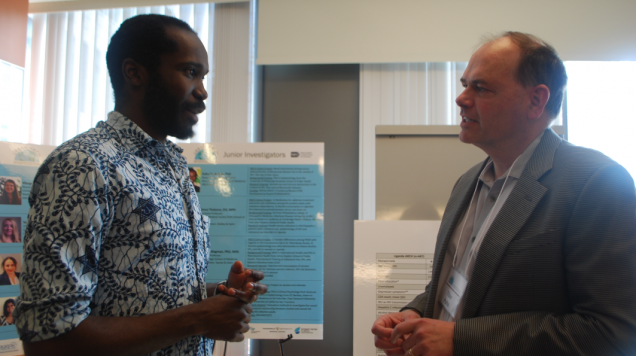Integrated telehealth intervention to reduce chronic pain and unhealthy drinking among people living with HIV
Chronic pain is a common co-occurring condition among those living with HIV. This includes pain that may be specifically linked to HIV, such as neuropathy, as well as a variety of pain conditions associated with aging now that the HIV population is getting older on average with the wider use of antiretroviral therapy (ART). Chronic pain severity and interference is influenced by a number of lifestyle factors, particularly unhealthy drinking. Chronic pain and unhealthy drinking are associated with functional impairment, have negative reciprocal influences on one another, and have been associated with HIV-related outcomes across the treatment continuum.

We need alternative approaches to improve engagement and retention in treatments that concurrently address unhealthy drinking and pain among people living with HIV (PLWH). Clinical care during the COVID-19 pandemic has made telehealth videoconferencing commonplace. Based on cognitive-behavioral and motivational approaches to pain management and alcohol use, we have developed a brief (7 session), integrated telehealth intervention to help manage pain and reduce unhealthy drinking.
The main objective of the proposed randomized controlled trial is to test the efficacy of this intervention in a national sample of PLWH. One special feature of this trial is that all research recruitment and intervention procedures will be conducted remotely through videoconferencing and smartphone data collection. We will explore a care model in which a centralized trained provider may provide services to PLWH with pain and unhealthy drinking across the country.

ARCHER is ideally suited to support the successful execution of this project. With the support of the Biostatistics and Data Management Core we will be able to capitalize on existing methodology and statistical approaches ideally suited to test our project Aims. We will be using ecological momentary assessment (EMA) to measure pain, alcohol use, and physical function multiple times per day in the two weeks prior to and the two weeks after treatment. This will allow us to gain a more precise understanding of how alcohol and pain influence one another and physical function, to identify risk factors associated with unhealthy drinking and pain, and to provide insight into potential mediators of the intervention itself. In addition, the Administrative Core of the Center will be integral in aiding our recruitment and screening procedures to ensure successful study completion.
This project has the potential to identify an efficacious intervention targeting two central co-occurring conditions among PLWH which interfere with physical functioning and quality of life. The use of an integrated telehealth approach can improve access for PLWH and broaden the impact and appeal of this novel behavior-change therapy.